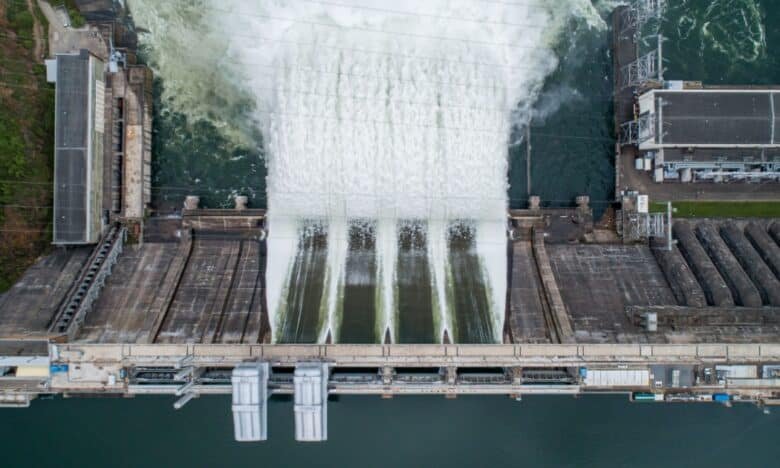
Over 1 Million More Trees in Cebu Thanks to RAFI and GCash
- July 9, 2024
The Ramon Aboitiz Foundation Inc.’s (RAFI) continued partnership with the Philippines’ leading finance app, GCash, has resulted in a total of 1,150,000 trees planted across Cebu.
Through RAFI’s “One to Tree” program and GCash’s GForest initiative, the two companies aim to combat the effects of climate change and create livelihood opportunities for surrounding communities.
A Prolific Partnership for Sustainability
The partnership, which dates back to 2021, encompasses three projects. The first two were based in the Luyang Watershed in the northern town of Carmen. One project spans 375 hectares, covering the barangays of Caurasan, Upper Natimao-an, Liboron, Ipil, Cantumog, and Lower Natimao-an. The other project encompasses 355 hectares, with planting sites in the barangays of Upper Natimao-an, Corte, Ipil, Caurasan, Hagnaya, Lanipga, and Cantumog.
In these two areas alone, an impressive 600,000 trees have been planted. This vital ecological area is now enhanced by the addition of various tree species, such as bangkal, mamalis, molave, nangka, and narra, along with fruit-bearing trees like avocado, cacao, cashew, coffee, guyabano, mangosteen, and rambutan.
The Luyang Watershed provides at least 24,000 cubic meters of surface fresh water. In recent years it has faced persistent water shortage issues. With the additional tree cover from the RAFI-GCash project, the nearby cities of Cebu, Mandaue, and Lapu-Lapu stand to benefit from the improved surface water along the watershed rivers.
The third initiative involved the planting of 550,000 mangrove seedlings in the municipalities of Daanbantayan, San Remigio, and Medellin, all of which face the Tañon Strait, the largest marine protected area in the Philippines under the National Integrated Protected Areas System. The species planted include bakhaw lalaki (Rhizophora apiculata), bakhaw babae (R. mucronata), bakhaw bato (R. stylosa), bungalon (Avicennia alba), miapi (A. marina), A. officinalis, A. rumphiana, pagatpat (Sonneratia alba), pedada (S. caseolaris) and S. ovata. covering an area of approximately 60.5 hectares as of December 2023.
Growing Roots in Local Communities
Mangroves are important coastal trees that grow in saline coastal habitats and play a significant role in coastal ecosystems and biodiversity.
To address natural disaster risks and enhance water availability, RAFI has incentivized local farmers to plant and care for these mangroves, engaging 164 landowners, 1,965 individuals, and 18 community organizations in site preparation, tree planting, and maintenance.
“This partnership with GCash allows us to reach more people and enable them to take part in caring for our environment even in simple ways. Through this partnership, people can build forests one tree at a time, and also help in community-building and income augmentation of locals. This is a win for the environment and a win for Cebuanos,” said RAFI president and CEO Amaya Aboitiz-Fansler.
This is another sustainability project of RAFI that is comparable to AboitizPower’s other environmental initiatives.
Reforesting with Digital Trees
In celebration of Philippine Arbor Day on June 25, five new tree species – molave, mamalis, jackfruit, guyabano, and avocado – will be available for planting through GForest, a non-profit initiative of GCash.
The GCash app offers a user-friendly platform where users can contribute to environmental conservation by planting a diverse selection of trees. Users generate green energy, which they can then convert into actual digital trees. In collaboration with international and local partners like RAFI, GCash then plants these real trees across the Philippines at no cost to the GForest users.
This digital eco-initiative aims to address both biodiversity concerns and the socioeconomic needs of local smallholder farmers. GForest has already successfully planted approximately 2.8 million trees of various species, including mangroves (such as tabigi and tangal), native trees (such as malapapaya and narra), and fruit-bearing trees (such as coffee and coconuts) for agroforestry assistance.
As a science-based endeavor, GForest and its partner organizations consult environmental experts to determine the ideal species for each planting site and ensure high survivability rates for the planted seedlings.
“The success of our Cebu initiatives with RAFI proves that by leveraging the power of collaboration and science-based innovations, we can make meaningful progress in our pursuit of a greener and more sustainable world. We are grateful for RAFI and all our partner organizations, and especially for the dedicated advocacy of our GForest users, for continuing to plant the seeds for a better tomorrow,” CJ Alegre, GCash head for sustainability, stated.
Source: Ramon Aboitiz Foundation Inc. plants over 1 million trees in Cebu with GCash support



